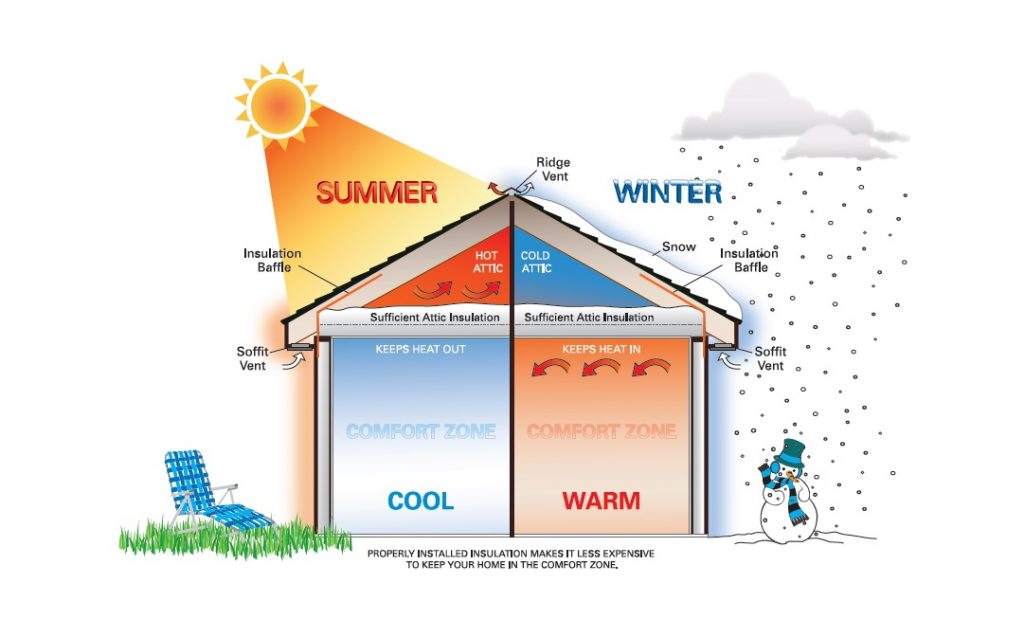WHAT ARE THE BENEFITS OF THERMAL INSULATION?
Thermal insulation has many benefits: First of all, it plays a huge role in maitain a constant temperature in a building throughout the year, keep buildings warm in winter and cool in summer. A well-insulated building will require much less heating or cooling and therefore be more energy efficient, making it more comfortable and at the same time saving money.
Heat transfer principles
Heat always moves from an area of high temperature to an area of lower temperature, which is why during the cold outside temperatures of winter, the warmth inside the building tries to escape through walls, windows, roofs and floors.
Remak® Rockwool Insulation is a poor conductor of heat which means warm or cold air will not pass through the wool resulting in a stable temperature inside the building.
It is thanks to its interlocking structure, fibers are made of millions of tiny air pockets that absorb heat or cold passing through, making it one of the most effective materials for insulation.
In addition to the insulation benefits, Remak® Rockwool plays an important role in fire safety and reducing noise pollution.
Different insulation materials will provide different levels of insulation, fireproofing and soundproofing performance.

Benefits of using Remak® Rockwool insulation
Not all insulation materials provide the same performance
There are many types of insulation materials, such as: rockwool, glass wool, XPS foam, EPS foam, PES foam… Each material has its own benefits that will suit the user based on their project. Because of its very nature, mineral wool insulation offers the best combination of thermal, fireproof and soundproof performance. It is also easier to install because the fibrous structure of the material fills the space; which means that any defects during construction are covered and thus give better actual performance.
And don’t forget that rockwool insulation is made from 100% natural and recycled materials; mainly volcanic rock and recycled material from slag.
